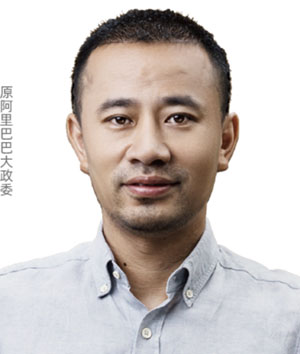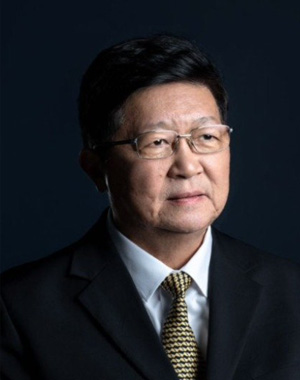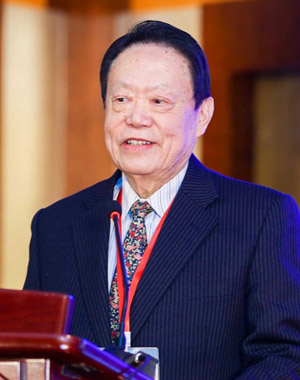1 CGTN Radio:China's Ministry of Commerce said it will step up efforts to formulate specific work plans for nine programs and this was unveiled at the Eighth Ministerial Conference of the Forum on China-Africa Cooperation held in Dakar, Senegal. One of them in areas like digital innovation, designed to deepen China-Africa cooperation as part of the first three-year plan of the China-Africa Cooperation Vision 2035. To start off with, could you explain a little bit to our listeners why it is important in the China-Africa cooperation at this time? Do we still have time or are we a little bit too late?
中国商务部在塞内加尔首都达喀尔举行的中非合作论坛第八届部长级会议上表示,将加紧推进九个项目的具体工作计划。在这九个计划中,加深中非在数字化相关领域的革新合作位列其中。首先请问您,为什么数字化革新在现在的中非合作中如此重要?我们现在的行动是否为时已晚?
Jinjie Wang: Developing digital innovation cooperation meets the development needs of both China and Africa. In May 2020, the African Union issued the African Digital Transformation Strategy, which proposed the overall objectives of the African Union's digital transformation and guided various countries to carry out the construction of the digital economy.
China-Africa digital cooperation has made continuous progress with the progress of the times. At different forums, science and technology cooperation was included in the cooperation framework, Chinese information and communication, radio and television enterprises were encouraged to participate in the construction of digital infrastructure in Africa, and paid special attention to cloud computing, big data, mobile internet, and other new technology applications. China has actively supported African countries to build "smart cities," to enhance the role of digital technology in maintaining social security, combating crime, and jointly maintain digital security with Africa. Also, e-commerce promotion and the China-Africa Beidou Cooperation all caught our attention. It is a win-win process for both China and African countries.
王进杰:发展数字化革新领域的合作是契合中非发展需要的。2020年5月,非洲联盟公布《非洲数字转型战略》(The Digital Transformation Strategy for Africa,以下简称《战略》)。在《战略》中提出了非洲联盟数字化转型的整体目标,为各国实行数字化经济建设做出了指引。
随着时代发展,中非数字化合作获得了持续推进。中国政府鼓励中国信息传播企业和广播电视企业参与非洲数字化基础设施建设,并着重关注云计算、大数据、移动网络及其它新兴技术的应用。中国积极支持非洲国家建设“智能城市”,加强在社会治安和打击犯罪活动中数字化科技的应用,与非洲合作共同维护数字化安全。此外,电子商务的推广和中非北斗合作也很值得关注,目前已经达成了中非国家的双赢合作局面。
2 CGTN Radio: How about the scope of China’s digital transformation and the digital scale it serves in China?
您对中国数字化转型的范围和规模有怎样的看法?
Jinjie Wang:Yes, as we see China’s digital transformation is happening in various industries. Digital finance, digital industries, AI manufacturing, and so on are hot topics being discussed. Especially the industrial digitalization, which refers to the improvement of production quantity and efficiency brought by the application of digital technology in traditional industries. However, the digital economy does not purely depends the data and digital devices, but it is a more integrated economy. For example, it includes but is not limited to industrial Internet, integration of industrialization, intelligent manufacturing, Internet of vehicles, platform economy and other new integrated industries, new models and new formats. Digital transformation is accelerated especially in the service industry. From 2016 to 2020, China's service industry is over 40% that relates to digital technology, industry over 20%, agriculture close to 10%. Yes, China’s digital transformation is moving fast. For example, The Internet of Vehicles is the main application scenario of 5G in the field of autonomous driving and intelligent networked vehicles.
王进杰:中国的数字化转型在多个产业中发生:数字金融、数字工业、人工智能制造等,这些都是热门话题,尤其在数字工业方面。在数字工业中,对数字科技的运用大大改善了传统工业的产出数量及效率。这里需要强调的是,数字经济并不全部依赖数据和数字化设备,而是一种更加综合的经济模式。比如,数字经济包括但不限于工业互联网、工业一体化、智能制造、车联网、平台经济和其它新一体化的产业和模式。目前,数字化转型正在加速,尤其在服务业中。从2016至2020,农业、工业、服务业数字经济渗透率分别为接近10%、超过20%和超过40%。其中,2020年的数据分别为8.9%、21.0%和40.7%。中国数字化转型在飞速发展。比如,在自动驾驶和智能网联汽车的领域中,车联网是最主要的5G应用场景。
3 CGTN Radio: Tell us what people are not seeing in terms of digital services that are already there within the China-Africa digital cooperation framework (here I make reference to the PEACE cable (PAKISTAN EAST AFRICA CONNECTING IN EUROPE) in Kenya, BEIDOU navigation system that has more satellites than Galileo does over Africa, Huawei mobile money, power solutions, e-commerce solutions at the Addis Ababa airport-Changsha airport.)
跟我们讲讲人们在中非数字化合作机制中的数字化服务里通常忽略了的地方(这里我提到的包括在肯尼亚的“和平光缆”计划——一条连接巴基斯坦区域、东部非洲区域通往欧洲的长途国际海底光缆系统、在非洲上空比由欧盟研制和建立的伽利略卫星导航系统拥有更多卫星的北斗导航系统、华为移动支付、电力解决方案、位于埃塞俄比亚首都的亚的斯亚贝巴博莱机场和长沙机场之间的电子商务解决方案)。
Jinjie Wang: As African countries have made efforts to explore ways to achieve economic development, we can see an important part of the fourth industrial revolution, the digital economy is bringing new impetus to Africa's economic development, and it has shown huge development space. China proposed the "China-Africa Digital Innovation Partnership Plan" in digital infrastructure, digital economy, digital education, digital inclusiveness, digital security, and building a digital cooperation platform.
One of the reasons of this prospect is that Africa's broad digital economy market can provide development impetus for China and Africa to accelerate the construction of "digital Africa.” Africa has a broad market prospect for digital economy, which is mainly due to its rapid development of urbanization and huge demographic dividend. We all know Africa is experiencing accelerated urbanization. By the year of 2025, there will be 85 cities with a population of more than 1 million residents in Africa. By 2050, the proportion of urban population in Nigeria, Ghana, Angola and other countries will reach more than 80% of the total population.
At that time, more than 800 million Africans will live in urban areas. Urbanization will promote the growth of consumer spending and make the African population closer to digital networks and digital services. On the other hand, the rejuvenation of Africa's population provides a huge demographic dividend for the construction of "digital Africa." The African youth population and the increasingly educated African population are important asset to accelerate the digital transformation of the African continent, providing huge human capital support for the development of the digital economy. Young people are the main force to promote the development of digital technology. Africa is the youngest region in the world. by 2050, Africa will account for 1/3 of the global youth aged 15-35. At the same time, the number of African people who have received higher education has increased from 47 million in 2010 to close to 80 million in 2022. In the long run, Africa's urbanization and the youth population are expected to become one of the most attractive digital markets in the world.
王进杰:非洲国家竭尽所能探索获得经济发展的方式,也让我们看到数字经济是第四次工业革命中一个重要部分。数字经济正在带给非洲经济发展带来新的动力,同时展现出了巨大发展空间。中国政府提出在数字基建、数字经济、数字教育、数字包容性中建立“中非数字创新伙伴计划”,并成立数字化合作平台。
值得我们格外关注的是,非洲广阔的数字经济市场可以给中国和非洲带来发展推力,加速“数字非洲”的建设。非洲数字化经济有广阔的市场前景,主要因为非洲城市化的快速发展和巨大的人口红利。非洲的城市化进程正在加快。有研究表明,到2025年,将会有85个非洲城市拥有超过一百万居民;2050年,尼日利亚、加纳、安哥拉及部分其他国家的城市人口将超过这些国家总人口的80%。
到那个时候,超过8亿非洲居民将生活在城市里。城市化将加强消费型开支的增长并使非洲民众与数字服务的联系更加紧密。同时,非洲人口的增长为建设“数字非洲”提供了庞大的人口红利,受教育程度更高的年轻人是加速非洲大陆数字化转型的重要有利条件,是数字经济的主要消费群体,也将为数字经济的发展提供巨大的人力支持。非洲是世界上“最年轻”的地方。2050年,世界约有三分之一15至35岁之间的年轻人将来自非洲。受过高等教育的非洲居民人数从2010年的四千七百万增长到2022年的接近八千万。长远来看,非洲的城市化以及年轻人口的数量将使非洲成为世界上最具吸引力的数字市场之一。
4 CGTN Radio: We Chinese companies like Huawei which started its presence in Africa in 1998 and then we also have the Transsion group; the two are probably responsible for much of the digital infrastructure and smartphones used in Africa. Why do you think they have been doing so well in Africa since they started?
中国公司比如华为于1998年开始在非洲出现,接着有了传音。这两大企业基本包揽了大部分非洲数字化基建与智能手机市场。在您看来,他们为什么从开始到现在都做得那么好?
Jinjie Wang: In a study my research team just conducted, we investigated Chinese multinational enterprises in Africa. We find out In recent years, more and more Chinese enterprises go to Africa. They value the localization of their business in Africa, responsible not only for the digital infrastructure but also the people who are using the digital equipment. During this process, the knowledge transferring and technology transferring happened, and the digital transformation serves the development of local employees and their communities. Huawei and Transsion enterprises, and many more digital companies, have gone abroad to explore the African market, participated in the process of African digitalization, and contributed to local development. At the same time, the workforce and local employees are benefited from this process. For example, Huawei’s "Future Seed" project and Transsion's "Online Learning Platform" have made contributions to the training of local Internet talents.
In addition, more and more African young people joined the e-commerce platform built by Chinese companies for Africa, also the mobile payment technology and smart phone equipment provided by them, which all contributed to build an e-commerce ecosystem. The express and take-out industries have also risen and developed rapidly in African countries. All these are effectively serving both China and Africa enterprises, and driving the export and import between China and African countries.
王进杰:在我的研究团队前不久进行的调研中,我们调查了中国在非洲的很多跨国公司。我们发现,最近几年越来越多的中国企业到非洲去,他们重视本地化经营非洲业务,不但加大数字基建投入,还在为当地培养使用数字设备的人才。知识和技术转移在这个过程中发生,中国企业践行企业社会责任,为当地雇员和社区的发展贡献着力量。比如,华为的“未来种子”项目和传音的“网上学习平台”为培养当地信息通信技术人才和专业人才提供帮助。
另外,越来越多的非洲年轻人加入了由中国企业为非洲搭建的电子商务平台,包括参与电子支付技术以及使用智能手机设备的服务,这些都为电子商务生态环境的建立做了贡献。快递邮寄和外卖业务也在非洲各国中快速建立和发展,推动中国与非洲各国之间进出口业务的繁荣。
5 CGTN Radio: So we have the Digital Silk Road already in place, how about when it comes to the BRI if folded in successfully. Could a Digital Belt and Road (DBAR) be more sustainable in future and even lead towards relieving debt issues between China and some African countries as compared to the physical BRI? Could we say the risks involved in building a railroad are higher than building a digital network, for example?
现在我们已经提出了数字化丝绸之路,如果数字化 “一带一路” 加入到“一带一路”倡议中,它能否构建一个更加可持续的发展未来,甚至解除中国和非洲部分国家之间的债务问题?比如,修建铁路的风险是否大于搭建数字化网络的风险?
Jinjie Wang: As we all know, the digital Belt and Road goes toward improving recipients’ telecommunications networks, artificial intelligence capabilities, cloud computing, e-commerce and mobile payment systems, smart cities, and other high-tech areas, which represents the future of development and cooperation. Also, it requires strong infrastructure support, which takes time to be completely ready. Digital Belt and Road has the potential to substantially improve trade, foreign investment, and living conditions for citizens in its participating countries, but issues like to increase the transparency and security, expand trade, improve debt sustainability, and mitigate environmental, social, and corruption risks are also quite important factors that should be integrated along the way for the sustainability of this cooperation.
王进杰:我们都知道,数字化“一带一路”是为了加强使用者的远程交流网络、人工智能、云计算、电子商务和移动支付系统、智能城市以及其他高科技领域,代表了发展和合作的未来。它也要求强大的基建支持,而形成完备的基建支持需要时间。数字化“一带一路”有希望大幅度优化贸易、外来投资和各国居民的生活条件。在这样的条件下,增强安全性和透明度、加大贸易、加强债务可持续性以及减轻来自环境、社会、腐败等各个方面的风险都非常重要,这些因素需要在共赢发展中得到足够重视。


 李真顺
李真顺 周远祥
周远祥 欧德张
欧德张 孟晓苏
孟晓苏 刘大成
刘大成 殷大奎
殷大奎 曾凤
曾凤 庞国明
庞国明